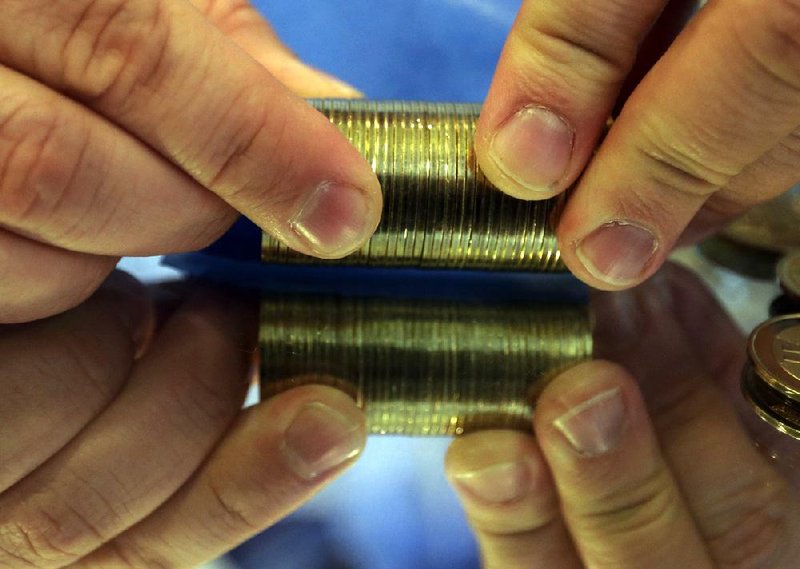Taiwan Semiconductor Manufacturing Co., Advanced Micro Devices Inc. and other companies saw more than $200 million in sales in 2013 for computing components used to create Bitcoins, Wedbush Securities Inc. said.
The virtual currency, which exists as software, is created by solving complex tasks embedded in the program through a process called mining.
Bitcoins traded for about $873 each on the Mt.Gox exchange Friday afternoon, up from about $13 a year ago. As their value surged, digital prospectors have rushed to create more of the digital money, boosting the market for high-powered machines, some of which cost more than $20,000 apiece. Taiwan Semiconductor, Advanced Micro Devices and Global-Foundries make many of the chips in the machines, said Gil Luria, an analyst at Wedbush in Los Angeles.
“Due to the growth of the Bitcoin network, mining machines now require powerful application-specific integrated circuits (ASIC) that are designed specifically to mine Bitcoins,” Luria said in a report. “We believe the majority of these ASIC chips are fabricated at Taiwan Semi-conductor and GlobalFoundries.”
The report also flagged some potential beneficiaries of the digital boom, such as eBay Inc.’s PayPal unit and International Business Machines Corp. PayPal could make Bitcoin one of its payment options, along with credit cards, this year, and benefit from an influx of millions of new users, Luria said. IBM could provide software and hardware powering Bitcoin and other new digital currencies, he said.
As more consumers adopt Bitcoin and other digital currencies for purchases and money transfers, that could adversely affect established financial companies such as Western Union Co., Luria said.
“It’s incredibly easy now to send money with Bitcoin from one country to another,” Luria said. “But now you need to know how to do it. I expect a flurry of money transmitters to emerge in the next one to three years, and they’ll be able to do this for everybody at a fraction of the cost of Western Union and others.”
Jason Gorss, a spokesman for GlobalFoundries, said the manufacturer is working with several companies that design chips for Bitcoin mining, such as ButterflyLabs Inc.
Representatives for Taiwan Semiconductor and IBM didn’t immediately respond to requests for comment.
“We’re watching digital currencies like Bitcoin closely,” Jennifer Hakes, a spokesman for PayPal, said in an email.
“Many of our consumers prefer cash,” Andrew Silver, a spokesman for Western Union, said in an email. “We will continue to track the use of virtual currency in the market, and expect that it should comply with the same regulations and oversight that the rest of the financial services industry must adhere to, to ensure that consumers are protected.”
Bitcoins aren’t controlled by any country or banking authority, so fees on using the currency to make purchases or transfer money can be much lower. Bitcoins are being used to pay for products including gummy bears and smartphones on the Internet. Retailer Overstock.com Inc. said recently that it will begin accepting Bitcoins starting in mid-2014.
“We think there’s an underserved part of the market that wants to use Bitcoins and can’t,” Overstock’s Chief Executive Officer Patrick Byrne said last month.
Information for this article was contributed by Alex Barinka of Bloomberg News.
Business, Pages 19 on 01/06/2014
